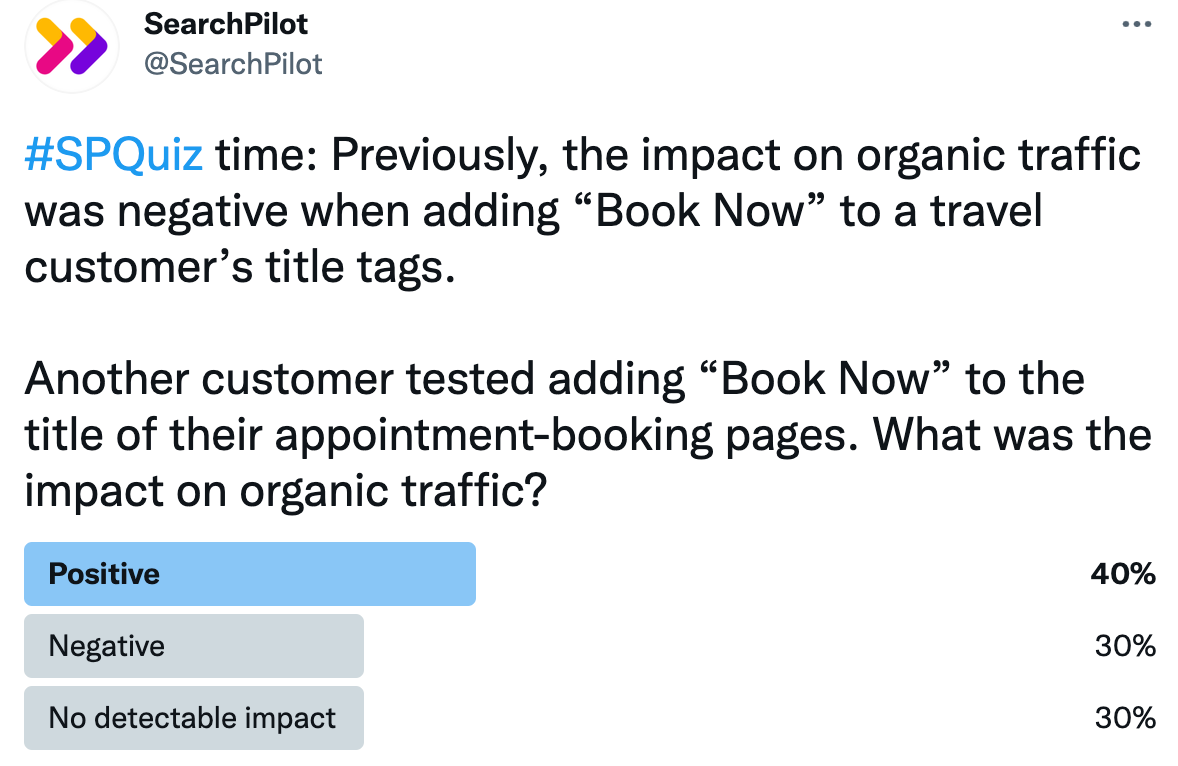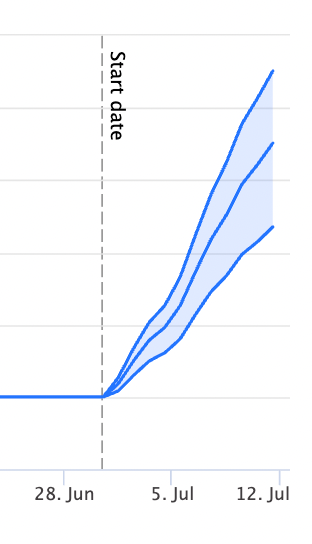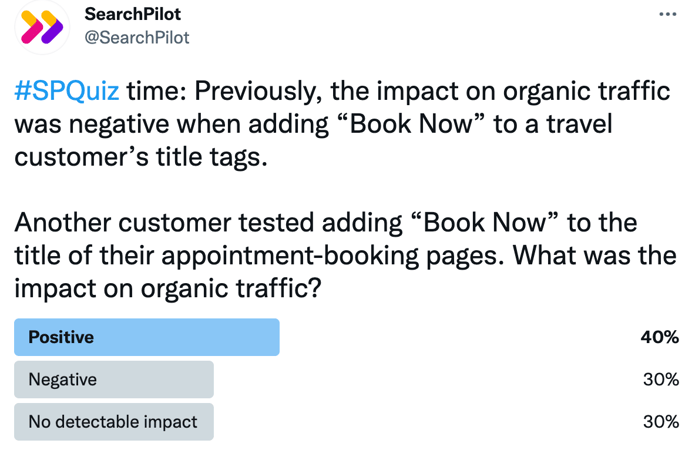Start here: how our SEO split tests work
If you aren't familiar with the fundamentals of how we run controlled SEO experiments that form the basis of all our case studies, then you might find it useful to start by reading the explanation at the end of this article before digesting the details of the case study below. If you'd like to get a new case study by email every two weeks, just enter your email address here.
In this week’s #SPQuiz on Twitter, we asked our followers what they thought the impact was on organic traffic when a customer added “book now” to the title tag of appointment booking pages. We prefaced the poll with the fact that running this test in a different industry gave a negative result:

The votes were pretty split, but a slim majority thought it would have a positive impact - the opposite result of our previous case study. Turns out the majority was right, this test was positive! Read the full details below to learn more:
The Case Study
A common question we get at SearchPilot is whether test ideas and their results are transferable from one site to the next. Like the answer to most questions in the SEO world… “it depends!” We love testing similar concepts on different sites and across industries because we often see varied results!
We recently released a case study where a travel customer added “book now” to the start of their titles. That test had a negative impact on organic traffic, but what if we look at a similar test in a different industry?
In this case study our customer tested adding the call to action (CTA) “book now” to the start of the title on local pages where users can book appointments.
It can be a risk to include a commercial CTA in title tags, as it can take up real estate that could otherwise be occupied by subjectively more useful keywords, like the address or brand name. If the intent of users’ queries is more informational or research based, adding the CTA verbiage might deter them from clicking through rather than encourage them.
Our customer had a CTA in the existing title relating to savings. They wanted to test replacing that CTA with something more focused on booking an appointment, so we replaced the existing CTA with “book now.”
| Control | Variant |
|---|---|
 |
 |
| Control |
|---|
 |
| Variant |
 |
We tested the impact on organic traffic and this was the result:

Woah - a completely opposite impact compared to our other “book now” title test. This test was statistically significant and positive, with an estimated +18% increase on organic traffic.
We hypothesize that perhaps this CTA compared to the CTA in the control title template was more compelling, as it indicated that you could book an appointment if you were to click through to the page. The positive result could have also been related to how much shorter “book now” was compared to the former CTA, which sometimes meant that more of the location’s address was shown in the search result.
Based on the two similar tests in two separate industries, we might conclude that seeing “book now” doesn’t persuade users to click through as much when they’re researching flights as opposed to when they’re looking to book an appointment. Although, as we know, there are multiple factors that can influence the outcome of our split tests. If it’s applicable and available to you, we suggest testing this for yourself!
How our SEO split tests work
The most important thing to know is that our case studies are based on controlled experiments with control and variant pages:
- By detecting changes in performance of the variant pages compared to the control, we know that the measured effect was not caused by seasonality, sitewide changes, Google algorithm updates, competitor changes, or any other external impact.
- The statistical analysis compares the actual outcome to a forecast, and comes with a confidence interval so we know how certain we are the effect is real.
- We measure the impact on organic traffic in order to capture changes to rankings and/or changes to clickthrough rate (more here).
Read more about how SEO A/B testing works or get a demo of the SearchPilot platform.
